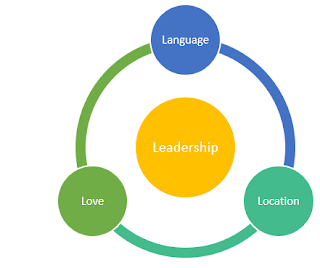We, the Kashmiri pandits

|
|
|
| A time long before the Internet and the Internet-of-things seeped in common parlance and certainly long-long before toddlers spoke Alexa as their first word, our house, like most middle class households in the 90s, received its daily dose of news from DD and magazines such as India Today and Frontline. In one such news magazine, I remember reading about the Parsis – the Zoroastrians who took refuge in India in the 12th century. The article covered their origins, struggles, their glorious past, their great contribution to nation building, and their impending inevitable decline. It berated how young Parsis no longer understand their religion nor are connected to their culture. How difficult marriages and funerals were becoming. How only a few rituals are done, and that too without understanding the significance. Even though Parsis are one of the most educated, rich, and influential community in India, their way of life is ending. Sensing this, some Parsis had built a time capsule, put symbols of their culture in it, and placed it in a deep well for future generations to find. “Find what” I thought. “How will this ever help? If the current generation doesn’t bother, why will the one hundreds of years from now bother except for a purely academic purpose?” “And should cultures worry about saving themselves in the first place? Cultures are rivers – taking, giving and evolving constantly – a forever churn. Those that are not, are the ones that should worry about stagnation” Though I have always believed in an evolutionary mash up of cultures – a constant churn to create a higher, better suited one; this story of the slow but sure decline of Parsis made me sad. The desperation of the ones who were making last attempts to revive has stayed with me – after all these years. Right here, was a tangible loss. The waning away of an entire community, their wisdom, and their way of life. The biggest gift of humanity is their power to empathize and hypothesize J K Rowling says. Replace the Parsis with us - the Kashmiri Hindus. Life post the exodus had been tough for most, the wounds perpetually green – untended, even poked again and again. Our parents’ generation spend all of their life restarting from the scratch and making it easy and comfortable for us. And we, the next generation, by and large, have grown in a secure though isolated environment. Islands across the ocean called India. Unlike the natural evolutionary curve that cultures have, the change of our culture has been abrupt - a waterfall instead of a meandering river. We had to adjust to survive and survive we did albeit at a tremendous cost of our culture. As I have grown up, the loss of our home and culture has become more sharp and tangible, especially since I had my own family. When my kid was small, I had to explain that snow is not hot, it’s very cold. No Kashmiri should have to explain this. At times, I feel that an event of this magnitude should have rattled our very core and got us together like the Spartans in 300. Instead, it threw us in all corners of the globe for respectful survival. ‘You’ and ‘I’ survived, though ‘we’ are dying. I feel we have failed our ancestors in not ‘striving enough and striving intelligently’ to retain and become aware of our culture. More importantly, we may just have failed in giving our next generations the necessary cultural roots. All I know at this point of time is that I do want to do my 2 cents. We have lost the battle, let’s not lose the war. So, I did some single-person brainstorming, which is obviously non-ideal, but is my personal first step to understanding and solutioning this. In my view, there are three key ingredients for a community to sustain – language, location, and love (or the sense of community which comes from togetherness). These points don’t exist in silos, but are interlinked and reinforce each other. All together, these make and sustain culture. There is a pivotal fourth one – leadership – for a community to move from survive to thrive. 
From my limited understanding of our history and from the account of our elders, leadership was never our stronghold. We have been weak in having a single leader and rallying after him/her with all our force – maybe it’s from the decades of servitude under one regime or another. The rest three started eroding post our genocide and exodus of 1990s. As in all situations – the best of best or the worst of worst, there is always something one can still do. And that’s what’s critical. Before we proceed further, here’s my disclaimer: My intent of writing this is not to be preachy; it’s more from the sheer desperation and magnitude of the task. I hope this triggers a wider conversation within us and we start eating this elephant one bite at a time. This is my aim for a butterfly effect. Leadership: We need to unite under a single leader and a single political organization. Period. Any this else is inefficient and won’t work as we are already in year 30. Enough historical data points on this. Most of the KP political organizations that I have tried to reach out to are dying or dead; they fall way short of the ask at hand. The phone numbers and email IDs don’t work. The twitter handles are mostly dysfunctional. For the once or twice that I have managed to get a response, there is a general lack of interest from the other party. For some, the scope of work is entirely cultural. A very easy method of introspecting here is to check against the below:
To my knowledge (again limited), there is no census on the population of KPs. We keep hearing different numbers on the total number of KPs. In any case, quite unlikely that we are more than 10Lakh. Is it possible to build a census and then set up a single political front by internal voting within the community? Difficult yes, but required. If not this, can all the existing parties with a political agenda converge and come up with a harmonized agenda and governance model in a 2-day workshop. Less difficult than the previous but required and effective nonetheless.
Location
They say God makes us go through ordeals as He wants us to learn something new. Something which wasn’t possible had we continued on our same old journey. I hope we are learning that we need to be more than a samovar lying in a display shelf or a pashmina lying unused in a suitcase. 30 years is a whole lot of time – almost half of the average human life span - yet not long enough for our history to be altogether forgotten. In some ways, I see our parents’ generation as the last custodians - our last chance – one of the last threads which connects us to Kashmir more strongly than we ourselves do. The next five years are make/ break time for us Kashmiri Pandits as a community. We must try out bestest best to reclaim our land and our culture. Apna time aayega! |
| |
 Ruchi is an Indian Kashmiri living in exile for the last 29 years. She is emotional (may be overtly) about all things Kashmiri. She is trying to understand our cultural uniqueness and the need for preserving our identify especially in the generation who has lived outside Kashmir. She is passionately clinging to her memories of Kasheer and is pining to end her exile and reclaim her roots in the land of her ancestors.
Ruchi is an Indian Kashmiri living in exile for the last 29 years. She is emotional (may be overtly) about all things Kashmiri. She is trying to understand our cultural uniqueness and the need for preserving our identify especially in the generation who has lived outside Kashmir. She is passionately clinging to her memories of Kasheer and is pining to end her exile and reclaim her roots in the land of her ancestors. Follow Ruchi on Twitter @rr_vichar. |
| |
